Interview with Lydia R. Diamond, Melinda Lopez, and Kate Snodgrass
Dramaturg Jessie M. Baxter sat down with playwrights Lydia R. Diamond, Melinda Lopez, and Kate Snodgrass; all three writers bridge the space between practice and academia. At a recent repast, they discussed the perils of finding the perfect job/art balance, the new play scene, and shared desires for the future of the theatre in Boston.
Jessie Baxter: Thanks so much for joining me here at Sibling Rivalry restaurant in Boston’s South End, next door to the Boston Center for the Arts and the Calderwood Pavilion. It’s a perfect place for this conversation, since these complexes offer rehearsal and performance space to an astounding number of productions each year—many of them new plays. I want to begin with something that weighs on my mind, since I work with a fringe company that exclusively produces new plays by local writers. One of the things I find interesting is this notion of new work, especially local new work, being a risk. I’ve seen companies, either when they talk to the media or their community at large, frame it as, “We’re going to do this local new play, and you’re so lucky we are taking this risk on you!” Do you feel like that’s true, and if so, why?
Melinda Lopez: What’s a sure bet? A sure bet is bringing in Motherfucker with the Hat because it’s a tested commodity and you know people are going to turn out to see it. But an unknown play by an unknown writer is a risk.
Lydia Diamond: Especially in the paradigm we know—the one that modern regional theatres made for themselves and we’ve come to embrace. It’s a huge risk because the audience they’ve cultivated has been trained to expect plays they have heard about before. And the whole financial structure is based around those people filling the seats and buying subscriptions.
Opposite that though, you have to find a playwright you trust and a play that you like. Why produce something that you don’t like?
Kate Snodgrass: Theatre is a nonprofit entity, that’s what we call ourselves. Unfortunately though, in order to continue to exist, there has to be some money made, and all of that depends on the plays that get done and how much your audience trusts you. If they trust you, they will come and see that show, and if it’s a failure, they’ll remember it. So in that sense, it is a risk. Opposite that though, you have to find a playwright you trust and a play that you like. Why produce something that you don’t like?
Melinda: But I don’t know which is harder—either you’re untested, or you’re tested and now the expectation is that you’re going to deliver the same as whatever the last thing was that you wrote. So how do you support a writer that you think is interesting and has potential that is going in a new direction, or that’s trying something new?
Lydia: We should always be going in new directions if we’re writing what we’re supposed to be writing.

Photo by R. Benson Photography.
Jessie: All three of you are educators as well as playwrights. Do you find the teaching equally as fulfilling as writing? How do you balance those two parts of your practice, if there is a balance to be struck at all?
Melinda: I really love teaching. I enjoy teaching creative writing as much as I enjoy teaching analysis of dramatic writing. I love taking my students through the construction and deconstruction of a script—why it’s interesting, why it was written at the time—it’s really stimulating to me. But much like acting is not playwriting, teaching is not playwriting. There’s a limited amount of space in my brain—and as I get older even less so—so I find that it’s difficult to do both concurrently. So what tends to happen for me is that I can schedule three months of summer, or a chunk of time where I’m teaching less, and I know I can get a script written, or can at least be doing research. But it’s very hard to engage fully with students and give them what they need (which, if you’re not doing that then what’s the point?) and also do my own work. So much of my challenge is trying to carve out those times. But, you know, boo-hoo, we all have challenges. I’m glad I have a job. I actually happen to like both of my jobs. But I can’t imagine another model except in very limited quantities, so it works OK.
Lydia: I’m just beginning my first semester as a Radcliffe Fellow, which I’m only writing; I don’t get to teach. It was really frightening the first couple of days. My first day at the Radcliffe Institute was the day we would’ve had our first faculty meeting of the year at Boston University. I had an anxiety attack and I didn’t know why. I realized it’s because that day in the fall when I go into the faculty meeting, I release whatever it was I was supposed to have accomplished over the summer, and it would actually feel quite liberating. I love teaching playwriting. I wouldn’t be jazzed about teaching the history of anything because I can’t hold numbers in my brain, but I’m really good at helping a room full of other people find their voices, and there’s a piece of my identity that’s kind of tied to that. It’s the way I mother. It’s another piece of my creative process, not necessarily what feeds into the playwriting, so much as it’s just another piece of me that needs to be engaged. So here I am at the start of this other model, and I am petrified that I won’t be able to find a similar way to replicate that. I didn’t know how much headspace the teaching was taking up.
Kate: I’m one of these people where I can’t not have a check coming in every month. I’m just too scared, I don’t have that artist mentality of, “Oh, I’ll just wing it.” So over the years I’ve managed to find a niche that I’ve made for myself that I could live with, knowing that I couldn’t spend all my days writing. I’m very rewarded by helping other writers and it makes me happy. But now I have all these playwrights’ voices in my head and I respond to all these writers, all year round, and I have to get rid of them in order to start my own writing. It takes me a while. It takes me longer every time. So I don’t know what to do about that. I’m continuing to be rewarded by having wonderful people around me. On the other hand, I miss the excitement of having an idea and thinking, “I’m going to move toward that.” Because I have the idea, and then I don’t get to move toward it, and that makes me sad.
Lydia: I think that as a profession, it’s our responsibility to take care of the people who are taking care of us and figure out how to get them their writing space. There should be a grant for leaders. There should be a sabbatical for leaders to step away and be artists for a while because I think you guys spend so much time making it possible for us to do what we do.
Jessie: I’m also wondering if there’s a way for the new play community and academia to be more intertwined? And if so, is that healthy?
Lydia: Absolutely. It confounds me because over and over again I go to regional theatre companies where they have a “relationship” with the resident college, and it doesn’t feel as if those communities are engaging in productive ways. It feels sometimes like they are misunderstanding each other in huge ways. I’ve seen it in states all across the country. The theatre company has so much to offer by giving the young people these opportunities, and to the educational institution it feels like free labor. Mistakes happen in both directions in regards to how that’s handled. And I also see more clearly, having been at Boston University, how difficult it is when you have kids in a conservatory setting scheduled up to their foreheads and unable to actually figure out how to manage a relationship with a company that has a different set of priorities. I would see these brilliant performances on main stages in universities across the country, and then go to a regional theatre company at the same institution and they hire some twenty-five-year-old from New York to play an eighteen-year-old, when there was some brilliant twenty-year-old playing an eighteen-year-old right at home.
And I also see more clearly, having been at Boston University, how difficult it is when you have kids in a conservatory setting scheduled up to their foreheads and unable to actually figure out how to manage a relationship with a company that has a different set of priorities.
Melinda: Is it a lack of clarity in mission? Elitism?
Lydia: I think it’s possibly conflicting priorities and busy leadership, pride, and elitism. I think it’s a clashing of purposes, because everyone can see it should be a fortuitous relationship. I would love to see, nationally, people taking great pains to sit around tables and figure that one out because it feels like a huge missed opportunity. Do you know who did it really well? Siti Company’s Café Variations at ArtsEmerson—it was so beautiful because they had these kids fully integrated into this work that the company was already doing, and these production values that would blow your mind. You could only identify that seam where the students and the company merged if you already knew Anne Bogart’s company of actors—a process of elimination. And I thought, well that’s what I’ve been waiting to see forever. And it happened in Boston!
Jessie: How else have things in Boston changed regarding new work since you have been here?
Kate: I was just speaking to local director Megan Sandberg-Zakian (at Central Square Theater), and I said, “I’m going to chat with Lydia and Melinda about new work. You’ve only been here a couple of years, what would you say about Boston and new plays?” And she said, “Boston is a Mecca for new plays.”
Melinda: That’s so awesome!
Lydia: That’s the way it felt to me eight years ago. It looks that way.
Kate: It is that way! Especially in the last four or five years. But I tell you, twenty years ago, it was laissez-faire.
Melinda: I was thinking of many of our wonderfully talented students that are applying to the Huntington Playwriting Fellows program now. Or, SpeakEasy has a playwriting residency now, and New Rep has a playwriting program. A lot of the emerging playwrights that train at our local colleges and universities apply, and many of them don’t get in. And I think, goddamn, I didn’t have to apply! I didn’t apply to BU, I didn’t apply to Huntington Playwriting Fellows, I was just here. And there has to be a lot of credit put to a sea change that happened around us, and those of us that just happened to be old enough to be there got lifted with the tide. There was definitely a national cultural awareness of new is good, local is good, and let’s start focusing on the people who are putting their kids through school and who are also artists.
Kate: I have to say, I really think the Boston Theater Marathon had something to do, not necessarily with new work, but with pulling the theatre companies together in a way that was communal. The community was working together, and that means that everybody’s talking to each other.
Lydia: And how many years have you been doing that?
Kate: Fifteen years. Certainly the theatre community is a much tighter one since then.
Lydia: I think more and more, as Boston has opportunities for playwrights, then the playwrights stay. And as the playwrights stay and the work gets energized and exciting and there’s a vibrancy around it, actors stay. And then the actors grow in sophistication about how to do new work. It does feel like a healthy evolution, even in the eight years since I’ve been here.
Jessie: I work primarily in the small theatre scene with Fresh Ink Theatre, and in the fringe theatre community there’s a lot of new work happening, even in just the past couple of years. There have always been companies who do new work, but it’s not necessarily their primary focus. It seems like recently it’s become more mission-driven.
Lydia: It would be interesting to see how the numbers break down in Boston, in terms of new productions and where. Ilana Brownstein compiled stats at Playwrights’ Commons.
Jessie: New play development is much more supported than it was previously, but it’s not perfect and there’s still work to be done. What are some of the challenges that still remain in Boston?
Kate: I think when you look at the community at large, the bottom line is that everyone should have a new play in their season. Period. That’s it. Because then everybody’s going to take a chance, and that chance won’t be so risky if everybody’s doing it.
Melinda: It’s also that your audience comes to expect it, to anticipate and look forward to it. I’m looking forward to the time when theatre companies have a writer, or a small cadre of writers, with whom they’re engaged in constant conversation. They’re saying, “next season we’re really looking at this question” or “what if we created something based on this neighborhood?” Having playwrights who are available to them, in a relationship, and where are the companies based around actors creating original work? Generating work that’s site specific, that’s located in your neighborhood, is genius.
Lydia: And artist generated.
It feels very white, across the country and in Boston. It feels like it’s a problem of seeding companies of color, but also teaching audiences to want more and giving audiences more credit.
Melinda: I just don’t know what that costs. I know the reason we lose a lot of our talent to other cities is because people can’t draw a regular paycheck, and they can’t find work that sustains them if their artistic work does not. I know that theatres don’t have a ton of money to keep a company going, but I just wonder at the value of putting your money where your mouth is.
Lydia: It really is a critique of the national theatre scene just as much as it is of Boston. I would love to see theatre look more like the demographics of the city. It feels very white, across the country and in Boston. It feels like it’s a problem of seeding companies of color, but also teaching audiences to want more and giving audiences more credit. In the eight years I’ve been here, I’ve seen the Huntington theatre company taking great pains in that direction. It’s interesting that I would use the word pains, but it really is.
Melinda: And Underground Railway has always done that in a very local, community-based way.
Kate: Well, it’s a conscious decision.
Lydia: It’s exciting and I don’t know why that isn’t more of a model for how theatre gets done in general. I think that theatre should look like the bus stop, and if it doesn’t, I don’t know that we’re doing anything, really. We just make better art when we tell all of our stories.

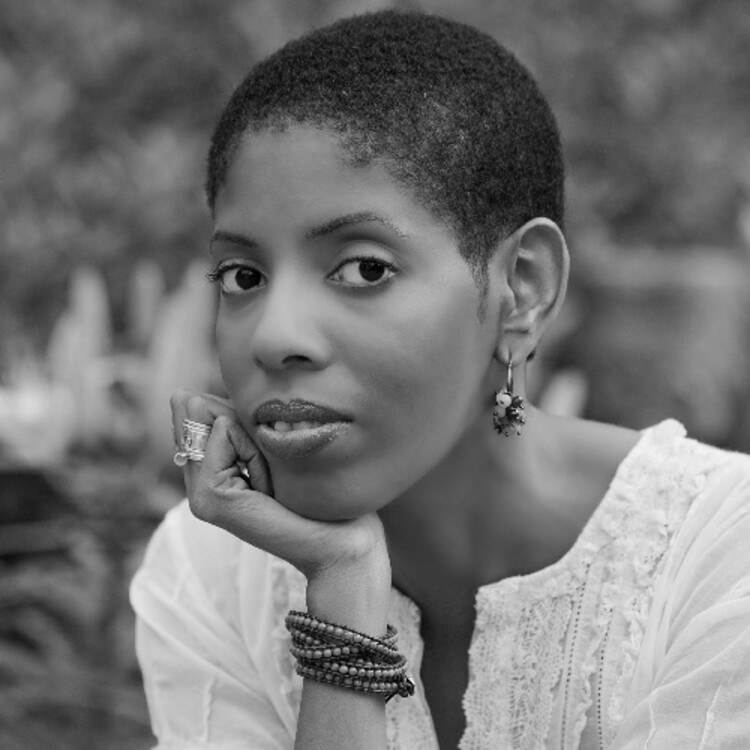

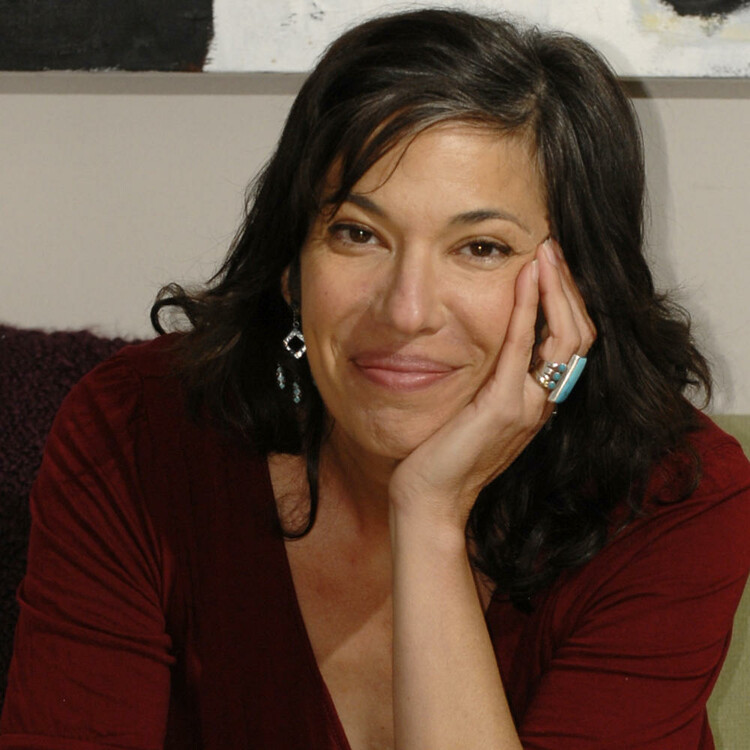
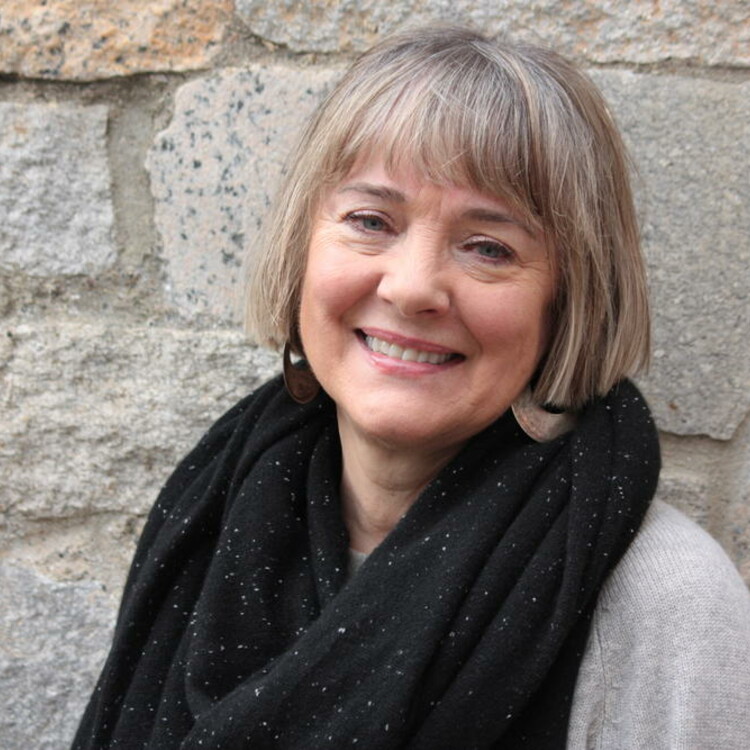
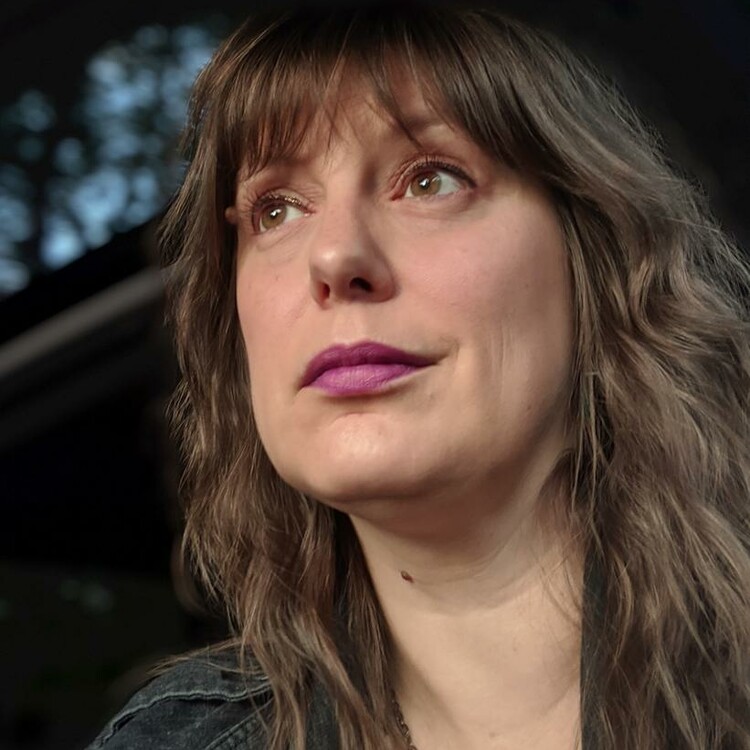
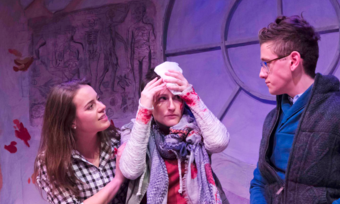


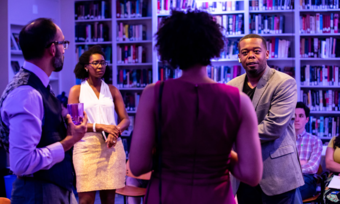


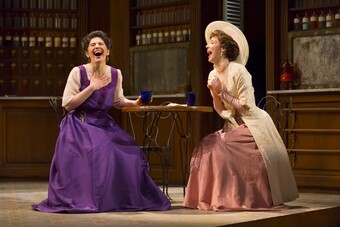

Comments
The article is just the start of the conversation—we want to know what you think about this subject, too! HowlRound is a space for knowledge-sharing, and we welcome spirited, thoughtful, and on-topic dialogue. Find our full comments policy here
I was blown away last year at the number of actors and designers who gave their time and energy to be a part of New Rep's New Voices program. We started the program with no funding and had nothing to offer the artists except food and gratitude - but their passion, belief in the projects and enthusiasm for new work kept them coming back every 6 weeks to read and work with the playwrights.
I also think that New Rep's audiences have come to expect challenging work and great story telling over the newest title from the hottest playwright. It's gratifying to have those conversations with our base and know that doing a new play is no more or less risky than doing any show here.
I am also inspired by the organization of the writing community who are creating their own writing groups and development processes to support each others work with the help of our artistic community donating their time to read and discuss the plays. It says a lot about Boston's investment in local writing. I am excited about where we're headed.